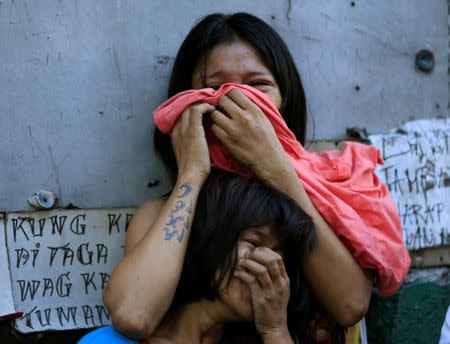U.S. troubled by increasing extrajudicial killings in Philippines

WASHINGTON (Reuters) - The United States said on Thursday it was troubled by the growing number of extrajudicial killings in Philippine President Rodrigo Duterte's war on drugs and called on Manila to stick to its commitment to investigate them. According to police data issued this month, nearly 9,000 people, most of them drug users and dealers, have been killed since Duterte took office almost 10 months ago and promised an unrelenting campaign to rid the Philippines of illicit narcotics. Police say about a third of the victims were shot by officers in self-defense. Human rights groups believe many of the remaining two thirds were killed by paid assassins cooperating with the police or by police themselves, disguised as vigilantes. The government and police reject that. Patrick Murphy, the U.S. deputy assistant secretary of state for Southeast Asia, said the United States shared Manila's objective of eliminating the scourge of illicit drugs and wanted to help. "We however do have a very sustained and deep concern when elements of the drug war are operating outside the rule of law," Murphy told reporters. "The growing number of extrajudicial killings is troubling." Rights advocates were concerned when U.S. Secretary of State Rex Tillerson sidestepped questions about extrajudicial killings in the Philippines during his January confirmation hearing, raising the possibility that President Donald Trump might take a softer line on the issue than his predecessor, President Barack Obama. Murphy said there was a distinction between being a nominee and the secretary of state and Tillerson was now the leader of the policy of expressing concern about the way the drug war was being waged. "We are urging the Philippines to follow up on its commitment to investigate extrajudicial killings whether they are committed by law enforcement, or of a vigilante nature," he said. Ernesto Abella, a spokesman of Duterte, said the Philippines shared the concern of the United States and said authorities "follow operational protocols" and those who breached procedures were made to answer before the law. "We expect fairness and not a rush to judgment," Abella said in a statement, adding persistent news report about close to 9,000 people being killed in the drug war "is false news". From July until March 24, he said police recorded more than 6,000 people had been killed, classified as cases under investigation, but only 1,398 of the deaths were found to be drug-related. Abella's figure did not include more than 2,600 people killed in police operations. Earlier on Thursday, Duterte's office rejected allegations by two senior police officers in a Reuters report that police received cash rewards for executing drug suspects, while the most high-profile critic of the president backed the officers' claims. Duterte was infuriated by U.S. expressions of concern about extrajudicial killings after he took office last year and threatened to sever the long-standing U.S. defense alliance. Duterte spoke positively about Trump, a fellow populist, after the U.S. presidential election in November, although his anti-U.S. rhetoric continued. (Reporting by David Brunnstrom and Yeganeh Torbati in WASHINGTON; and Manuel Mogato in MANILA; Editing by Frances Kerry, Robert Birsel)

